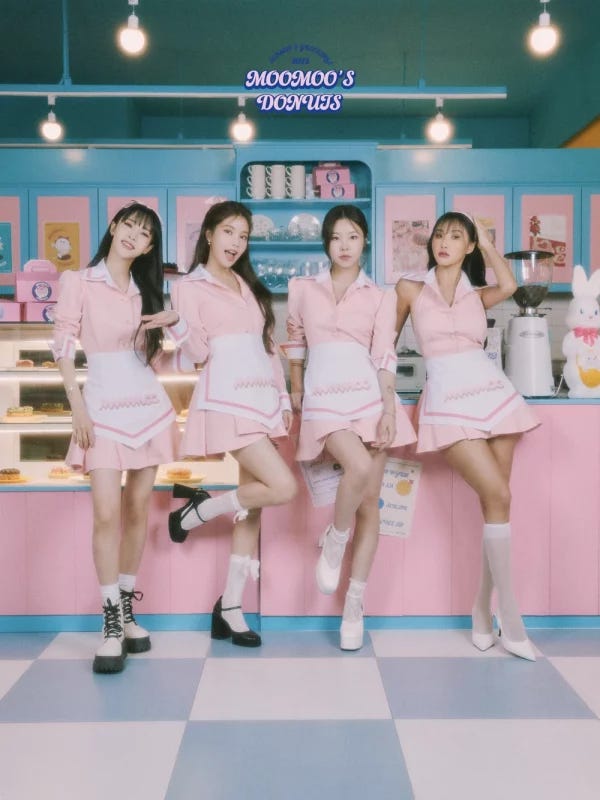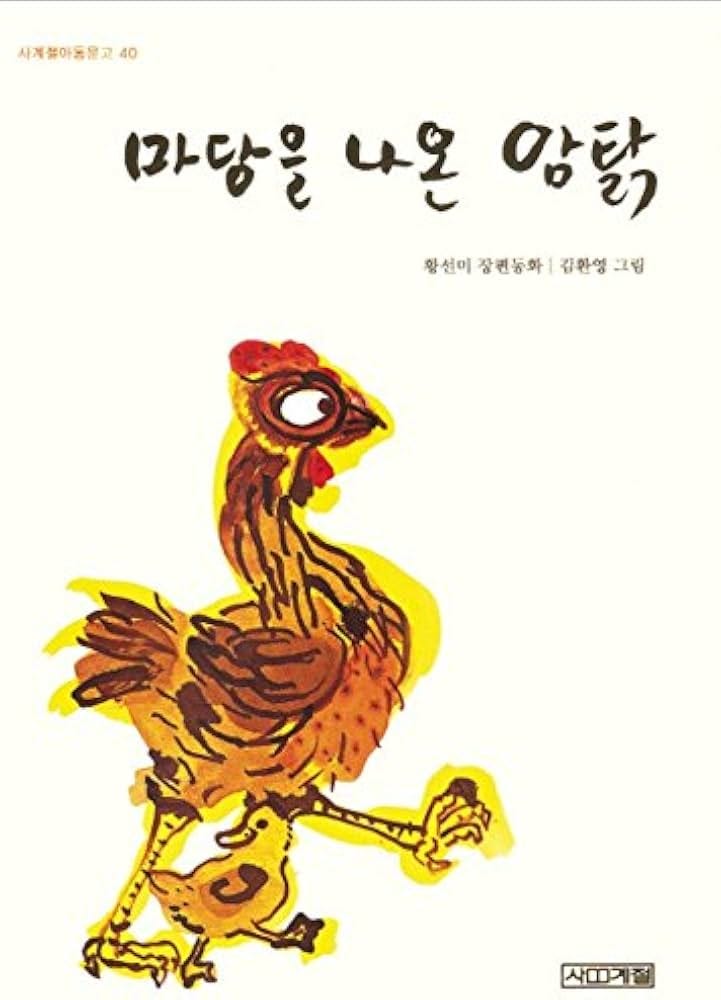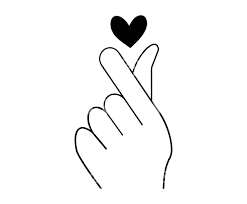K-Lit No. 5: Wayfarer
"It was a lonely business staring at the ice cubes clinking against the glass before disappearing. Staring and waiting."
Read it here: Wayfarer
About the author: O Chong-hui
Translated by: Bruce and Ju-Chan Fulton
Summary:
O Chong-hui, who has been compared to Joyce Carol Oates and Alice Munro, examines a day in the life of a woman recently released from a mental institution.
Since her debut in 1968 with the remarkable “The Toy Shop Woman,” a story she began in high school, O has produced a body of short fiction that is by turns elegant, elusive, deceptive, and unsettling. She has always been interested in family life, but breaks new ground in depicting not only the surface routines of family members’ interactions but also the bleak prospects of solitude, insanity, death, divorce, and desertion that lurks beneath. To control this volatile mix, O employed in her first volume of fiction a series of nameless first-person narrators that simultaneously engage and distance the reader. The stories in her subsequent collections tend to be more approachable.
“Wayfarer” is more wistful than many of her other works, but is characterized by the same careful construction and terse but suggestive dialogue. O excels at psychological portraits, and the tableau of Hye-ja in “Wayfarer” is no exception. In this story we can see that as recently as the 1980s, Korean women reigned at home as usual, but might face stark despair if suddenly deprived of their life in the domestic sphere. Without ignoring the upheavals that have attended the rapid modernization of Korean society, this and other of O’s stories transcend cultural boundaries to address universal themes of emotional rootlessness and a yearning for permanence, both in the immediate context of the family and in the larger society. In doing so, they speak to the quest of Korean women writers for acceptance both at home and abroad and to their anticipation of the day when they would no longer be distinguished by their gender but would be known simply as writers. - Bruce and Ju-Chan Fulton from The Future of Silence
Thoughts on Wayfarer:
If you look at my copy of this piece, published in an anthology of fiction written by Korean women called, The Future of Silence, I have underlined or highlighted, or otherwise annotated, nearly every other sentence. I loved this story, with an enthusiasm I don’t have for the others I've written about so far on this Substack. It’s not that I don’t like the other stories–but this one really resonated.
This story is about a woman living with the consequences of surviving trauma in a restrained, stream-of-consciousness akin to Woolf’s Mrs. Dalloway, which I also love.
Let me show you what O does with snow in just the first few sentences:
The snow had started that morning. Hye-ja opened the window, sat on the sill, and watched the carefree flakes turn the world giddy. The neighborhood was still, the snow muffling every tiny squirming noise.
Okay, now read it again, with my emphasis:
The snow had started that morning. Hye-ja opened the window, sat on the sill, and watched the carefree flakes turn the world giddy. The neighborhood was still, the snow muffling every tiny squirming noise.
I didn’t really need to show you the emphasis, did I? Because these words, unexpectedly together, already unsettle. That, with the opening line–the snow had started that morning–gives us an indication of how O is going to build and release tension through Hye-ja’s observations of her environment. Throughout the piece, she does just that–with snow, with lights, with a giant Christmas tree.
One of the strengths of this piece is that O characterizes Hye-ja as someone who is troubled, in a terrible situation, trying to reclaim something of what she’s lost. But O does it without the trauma dumping, the unnecessarily grim interiority. It’s just Hye-ja and what she observes, her brief interactions, and her relationship to her once familiar environment, now haunted and strange.
Even the anxiety-induced spirals remain tightly conveyed.
Here’s a slower spiral with shorter sentences, and that hard-working word, patiently:
She examined the Arabic numerals and redialed. Same result. It was strange. She felt bewitched. Myong-hwa’s telephone rang incessantly–no answer. Patiently she dialed Ch’un-ja at home.
Here’s a more urgent spiral with repetition, a question with no question mark, and longer sentences:
Even so, he wouldn’t have forgotten his interest in displaying her dolls. He wouldn't have forgotten his suggestion that she hold an exhibition complete with a puppet show. She had to see him, the following day if possible. She could get back to making her dolls. With her puppet shows she could tour schools on remote islands and other out-of-the-way places. And if she supplied each of the schools with a set of puppets from the show at a discount, then the children could set up little theaters at home and have their own puppet shows. Wouldn’t that be fun. This was exactly the meaningful work she wanted, and she could earn a bit of money doing it. It would be a wonderful thing to do, and it made perfect sense.
I think what resonated with me about O’s characterization of Hye-ja is that it’s relatable. I’m a survivor of sex-based trauma and I have an anxiety disorder. For years, I’ve worked to recognize when the anxiety spiral is happening in my mind, so I can stop it before shit gets crazy. I’m not always successful. But I can tell you from experience: O knows what she’s doing in these expertly-crafted pieces of interiority. It’s refreshing, and I felt a kindred spirit with Hye-ja, which is a little weird to say, because she’s basically the mad woman in the attic (but it’s a cathartic trope for a reason, right?). As Hye-ja moves through the story, she’s at times unpredictable, at times completely normal, sometimes compassionate, sometimes very judgy:
I have better things to than tend coal for that slut.
(Do you Hye-ja? Do you?)
But what is also remarkable about this piece is O’s placement of the trauma. The traumatic incident is revealed towards the end of the piece. It’s the response to Hye-ja, after the trauma, by her friends and family, that fills the pages before it.
And isn’t that just O hitting the nail on the head? So much of how a trauma survivor survives is based on how the people around her react—to the trauma, yes, but mostly, to the survivor. Hye-ja isn’t a woman who had to be hospitalized because of the trauma itself. No, her daughter makes it clear:
Mommy, forgive us. What we did was a crime.
After the assault I experienced, I felt the stab of betrayal, like the one Hye-ja mentions here and there–a wound I’ve never quite healed from. That abandonment was worse, in so many ways, than the incident itself. O’s Hye-ja is the first character I’ve read in years I can relate to in this way.
I’ll stop there with my thoughts. I think I could teach an entire course on this piece, but no one’s paying me enough attention or money for that, so… let’s move on!
Quoteworthy:
“When she had cried herself to exhaustion, she felt a gentle gnawing in her empty stomach. That familiar hunger was like an old friend who had come to comfort her.”
“She cursed her liar of a daughter, who had bloomed more lovely with each new day.”
“What she had seen then was not the man’s face but her own nearly naked body.”
K-Pop Recommendation:
Mamamoo
This recommendation comes to you thanks to a colleague from work who loves K-pop. Shout out to you, Adam! He sent me this video and I enjoyed it. It’s fun and catchy, and these women are so talented.
A personal evolution:
Until recently, I haven’t enjoyed listening to K-pop. I wish I could blame it entirely on my devotion to indie and singer-songer folk music. No, it’s more shallow than that.
I think my biggest hang-up with it was the fact that it seemed to make Korean culture accessible to…well, non-Koreans, but in particular, white people, like my colleague, Adam, who seemed entirely too comfortable embracing Korean culture without ever having experienced the slap of a wooden spoon, or the hours and hours of torture-by-Kumon, or the actual torture of holding your arms up in the air until you’ve lost circulation (like the scene in Minari), or being yelled at for things white moms never yell at their kids for, or without having to live in the nebulous hyphen of Korean-American; worse, half-Korean American. Like, you didn’t go through all that shit, but you get to have tteokboki and eat it, too?
It’s silly, I know. I was ridiculous. I didn’t really think that way. But I have to be honest: I felt it.
Yet the more I read Korean literature, the more I listened to K-music and watched K-dramas, the more I talked to actual Koreans who are not my mother, the more I realized that my own understanding of Korean culture has been largely framed by my white-half’s cultural context, by my own tendency to romanticize and package my mother’s culture into whatever she is, and whoever she is. That is to say, I’d been uncomfortable with representations of Korean culture that seemed to conflict with my mother’s representation of it. And I’d attributed every difficult thing about my relationship to her as a result of our cultural differences (a belief that defies the popularity of stories from all cultures centered on conflict between mothers and daughters). And while in literature and in drama and in older music, I saw things of her I recognized, I didn’t see her in K-pop. And so I rejected it as “not really Korean”.
I guess I could put it another way: I felt stingy. K-pop was too generous. It let people into a culture I’d put on a pedestal of untranslatability–a feeling mirroring my own frustration with my mother. I had to work so hard to understand it, to understand her, yet here were all these white people listening to K-pop, speaking more Korean than me, making tteokbokki at home from scratch, sending me amazing Korean girl bands to listen to, and enjoying the Koreanness of it all.
It reminds me of something I already know so deeply, because of my mother: Korean culture is complex. It is beautiful. It contains multitudes, just as every individual who loves it. I can’t define Korean culture by one thing or one person or one narrative.
And I can’t begrudge my one half the open arms of the other.
Later today, I’ll make a plate of bap, chong gak kimchi, yaki mandu, and Maeun-dakbonggui, and watch a lot of college football (Go Vols!) with my family. I’ll speak every word in English, except 엄마, 빨리, 가자, 주세요, 먹다, and 고마워, my go-to’s as a toddler mom. We’ll probably watch some Tayo before we call it, and in early hours of tomorrow, when I can’t sleep, I’ll read another chapter of The Hen Who Dreamed She Could Fly by Hwang Seon-mi.
I feel lucky to live in the hyphen. I feel lucky to be both, and.
It’s confusing at times, it’s really not easy. But it’s very delicious. It makes me feel rich. It makes me feel happy. Because, it’s not all wooden spoons and Kumon! So much of (exported) Korean culture is fun! And I’m glad others, like Adam and everyone else surfing that Hallyu wave, are finding delight—and community—in it, too.
One Last Thing:
If you like the mad woman in the attic trope, you should read this story, Hut on a Mountain, by Can Xue. My friend
(who my son calls 이모), a Chinese language and literature professor at the USNA, sent it to me, and I gobbled it up in one delicious bite. It’s excellent and very short, so just read it!








To read O Chong-hui's works might be the only reason why I would encourage others to learn Korean! I think she is the only literary genius that post-war South Korea has produced.
Your musing on K-pop got me thinking. What does it mean to be Korean? Is there a certain essence that makes something Korean?